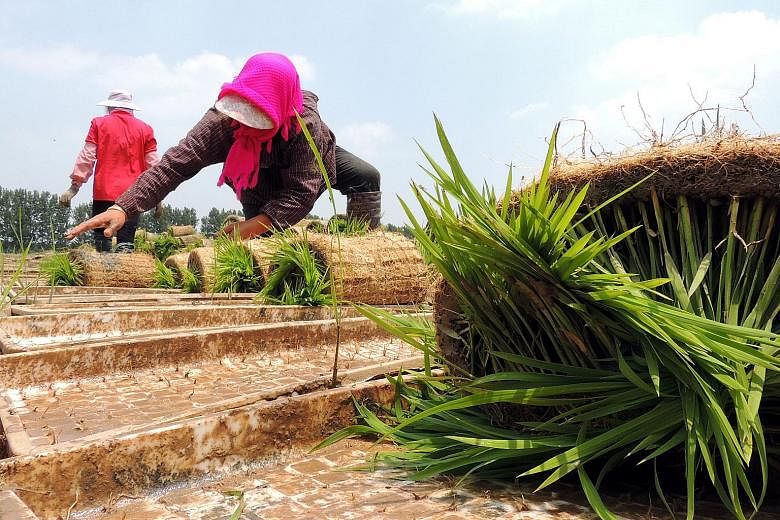BEIJING • A productivity overhaul in China could add US$5.6 trillion (S$7.6 trillion) more to the economy by 2030 than the current model of using investment to spur growth, a new study says.
Overhauling zombie companies and developing capital markets are among measures needed to unleash the economy's potential, according to McKinsey & Co. It estimates that household income would be boosted by US$5.1 trillion in the same period if such productivity can be harnessed.
China's urbanisation and industrialisation over the past 30 years of super-charged growth lifted 600 million people out of poverty. But more recently, its growth model has become challenged, leading policymakers to scramble for new drivers of demand. The economy expanded by its slowest pace in 25 years in 2015 and labour productivity - a measure of output per hour worked - in the world's No. 2 economy is 15 to 30 per cent of the average in Organisation for Economic Cooperation and Development countries, according to McKinsey.
Also, debt has ballooned to 2.5 times the US$10 trillion-plus economy's size.
Over the next 15 years, McKinsey estimates that 200 million people may shift from sectors such as agriculture and commodities to services and consumer goods.
Along with allowing more competition and deeper capital markets, areas identified by McKinsey as needing a shake-up include: corporate restructuring, raising labour force skills to fill talent gaps and enhance labour mobility, boosting demand in the economy and addressing income inequality. "This can and will happen," Mr Jonathan Woetzel, director of the McKinsey Global Institute and one of the report's authors, said in an interview. "There's a lot that could be done more productively."
The productivity challenge is not unique to China. Economies all over the world have been dogged by weak productivity growth since the global financial crisis, one of the key reasons the growth outlook for the world remains tepid and monetary settings so loose.
US Federal Reserve chairman Janet Yellen this week told Congress she is seriously worried about productivity. The top policymaker noted that it is not clear what has depressed productivity and cited a slumping rate of business creation and a slower pace of technological change showing up in output data as among the possibilities.
If China does not act, it runs the risk of flirting with a hard landing as capital productivity and corporate returns fall even as debt rises.
Mr Woetzel said: "The longer you wait the more expensive it gets."
BLOOMBERG

